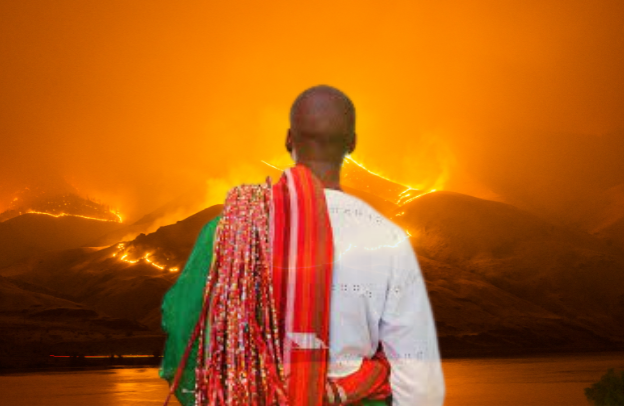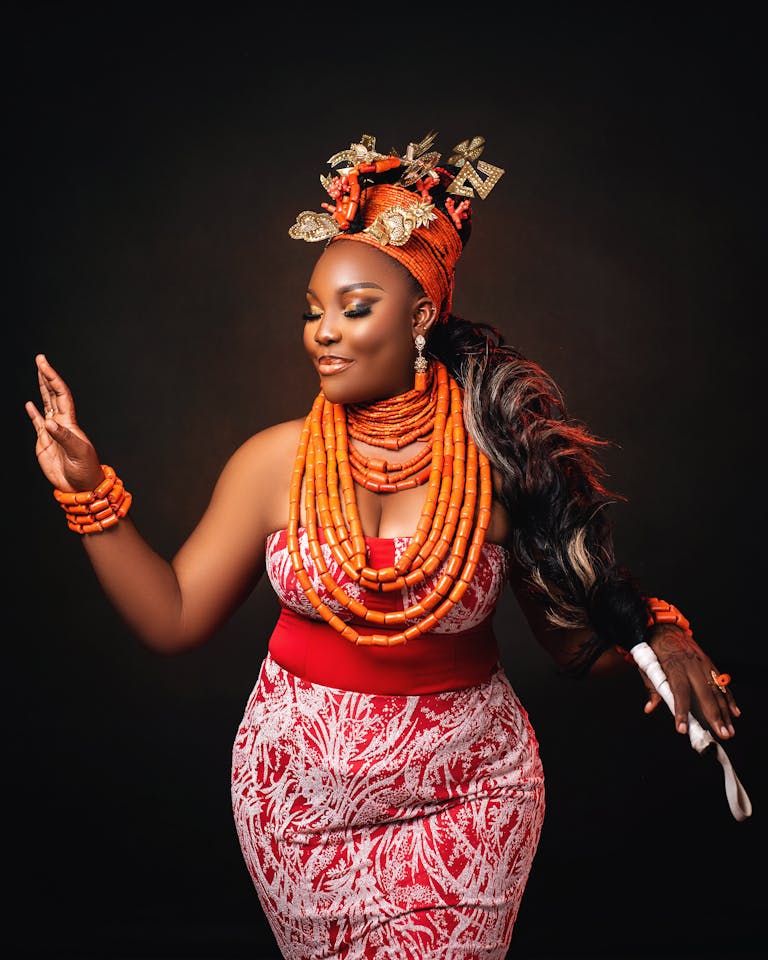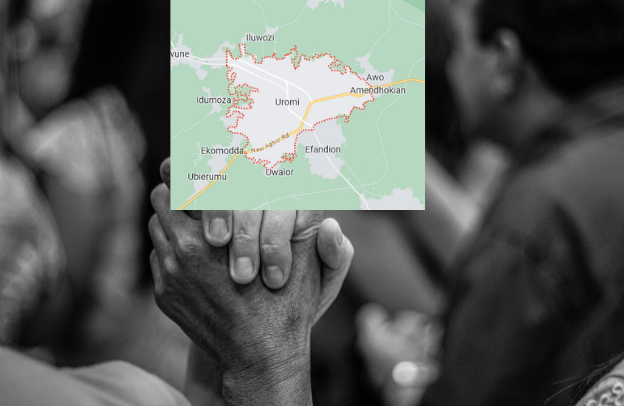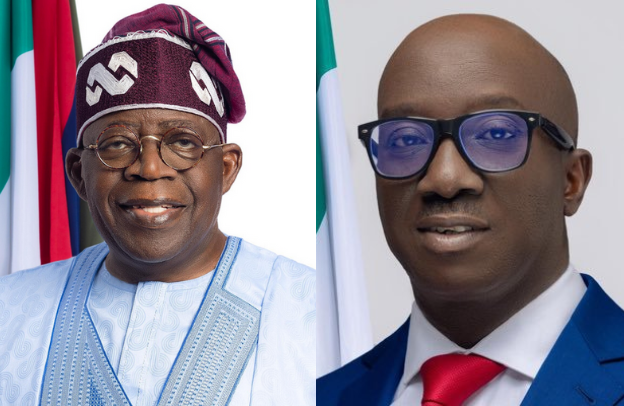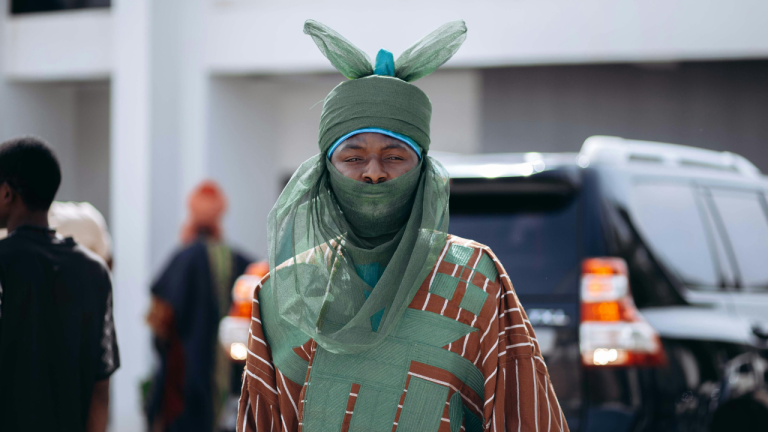Uromi: Embracing Ancient African Wisdom to Confront Modern Challenges
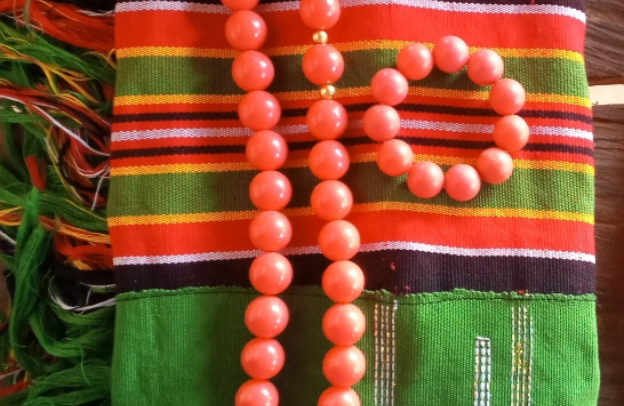
In the heart of Uromi, Southern Nigeria, a profound gathering took place today, resonating with echoes of tradition and resilience. Amidst the backdrop of insecurity plaguing Esan and Uromi, the people convened, invoking ancient customs, and pronouncing curses upon those deemed responsible for disturbing the peace of the land. From cultism to kidnapping and even killing in Uromi. It’s becoming unbearable for the people, and they are speaking out, seeking for solution.
Want to learn more about storytelling? Start by downloading the first chapter of The Storytelling Mastery.
This singular event means more than what you might think. It actually evokes a narrative deeply rooted in African history and belief systems. It reflects a timeless wisdom that reminds us to reconsider the value of indigenous African ways of life in our modern world.
The Validity Of African And Esan Wisdoms And Value Systems
In one of my books, “AMENDE – The Stream Water,” I took my readers on a journey into the fictional, yet symbolic village of Opkujie. There, you will read about how a community facing the problem of drought turns to their traditional beliefs, seeking guidance from their ancestors and they brought a rare village masquerade to the village square.
Through ritual and proclamation, they call upon the forces of nature to restore balance, culminating in the gift of rainfall upon their land. Yes, it rained heaving that same night according to the story.
This narrative illustrates the enduring connection between African communities and the spiritual heritage of their environment. It highlights a profound respect for nature and a belief in the power of collective action, rooted in their tradition.
The pages of history offer further testament to the power of African indigenous beliefs in confronting contemporary challenges.
Around 2018, the Oba of Benin, Oba Ewuare II faced the bad news about his people with their unholy conduct in Europe, particularly relating to prostitution and human trafficking, invoked ancestral authority to place a curse on human traffickers, and those facilitating the perilous journey from Benin to Europe.
According to the New York Times, “Human traffickers have officially been cursed”. The following is a clip from the article, A Voodoo Curse on Human Traffickers.
“Before being smuggled into Europe, women, and girls in the area, which falls in present-day Edo State, are made to sign a contract with the traffickers who finance their journey, promising to pay them thousands of dollars. The agreement is sealed with a voodoo, or juju, ritual, conducted by a spiritual priest, known here as a native doctor.”
The following is from another article, “Our gods will destroy you”; Oba of Benin curse human traffickers available on Vanguard:
“The Monarch who assembled all his chiefs, Enogie, Edionwere, priests of different deities in Benin, and native doctors at his palace, with a view to unleash different curses on the perpetrators, regretted that the oath of secrecy administered on the victims had been encouraging the illegal trade and warned all native doctors to shun the act and join hands with the palace to attract development and progress to the kingdom and not encouraging human trafficking.”
Now, this is what happened after that.
Despite the seemingly insurmountable nature of this crisis, including an intense effort by the Italian government and the European Union, one invocation of traditional sanctions brought about a tangible and immediate decline in human trafficking activities from Edo State to Europe.
What does this mean? Well, it underscores the efficacy of the African belief system in addressing complex societal issues. These indigenous mechanisms, tapping into African moral authority and value system are effective because they transcend conventional rules of engagement and they actually bypass them, sometimes.
There is an interesting interview I recently did with Dr. Tawanda Chabikwa, an Assistant Professor at the University of Texas at El Paso, United States. The conversation was on the topic of African Belief Systems And Its Influence On The Diaspora. You might need to see the video on our YouTube channel because it’s full of values and challenges as well.
Before his passing in 2020, the Former President of Ghana, Jerry Rawlings, issued a provocative challenge to African politicians. Rawlings asserted that if the people could bring their political leaders to stand before the local shrines, they would be truthful.
This, as you can imagine is a stark contrast to the veneer of political dishonesty often associated with modern governance, where they fabricate their own excellencies by laying hands on the Koran and Bible. Meanwhile, there is nothing in their actions that speaks about excellence.
Rawlings’s call, therefore, serves as a reminder of the moral compass embedded within African traditions, and it challenges us to reclaim our cultural heritage in navigating the complexities of contemporary governance.
You might also want to see an article we recently published – Celebrating African Diaspora Heritage: An Insightful Conversation with Loretta Green-Williams.
Now think about this, maybe many African leaders will be honest and truly do the will of the people if what guides their conduct is the common value system of the people, instead of some hypothesis from Europe and their complicated legal formulas.
Are there ways out of these situations? Of course, there are, and we are all called upon to participate. There is a crisis of value, and we need to fix it.
Three Ways To Reinforce the African Value System
Reinforcing Esan and African value systems will involve a multi-layered approach that integrates cultural, social, and educational strategies. Here are three key ways to reinforce African value systems:
Cultural Revitalization Programs:
Cultural revitalization programs play a vital role in reinforcing African value systems. These programs can focus on preserving and promoting traditional practices, ceremonies, languages, and art forms.
While going to primary school in Uromi, I was flogged for speaking Esan, my language. That needs to stop if we want children to love their language and defend it.
By providing platforms for communities to celebrate their heritage, cultural revitalization programs can develop to instill a sense of pride and identity among individuals. This can involve organizing festivals, storytelling sessions, traditional dance performances, and exhibitions showcasing indigenous crafts and artifacts.
Engaging community elders and traditional leaders as custodians of knowledge helps ensure the authenticity and continuity of these initiatives.
Education and Curriculum Development:
Integrating African values into educational curricula is essential for reinforcing these principles among younger generations. Educational institutions, from primary schools to universities, can incorporate modules on African history, philosophy, and cultural practices into their syllabi.
Last week, I had a very hot conversation with Professor Oluwafemi Esan, the Ambassador Of The Sovereign Kingdom of Hawaii To the United Kingdom and the conversation was about Decolonizing the African Curriculum.
You don’t want to underestimate the danger of the colonial educational system that we practice in Nigeria and other African countries.
We need to think seriously about our educational system. This includes children teaching about pre-colonial civilizations, indigenous governance systems, ethical values, and environmental stewardship.
There is a story we are currently working on Agba, The Esan God Of War. The event happened in Uromi, several hundreds of years before the start of European colonialism of Africa and we want to refresh the minds of the people about it.
By embedding African perspectives across various subjects, students can gain a deeper understanding and appreciation of their heritage and value system.
This too is important. I mean “Critical Thinking”. Promoting critical thinking and dialogue about contemporary issues within the context of African values can foster a sense of agency and social responsibility. The continued kidnapping across Esanland and Uromi is not an accident but a consequence of yesterday’s action and inaction.
We need to face that harsh reality because what we are doing or refusing to do now will inevitably produce their result tomorrow.
Community Empowerment and Leadership Development:
Empowering communities to address local challenges and shape their own futures is integral to reinforcing African and Esan value systems.
This involves fostering participatory decision-making processes, strengthening grassroots organizations, and supporting initiatives that prioritize collective well-being.
Of course, we need to celebrate Uromi youths for the good work they are doing, organizing cultural events, and so on.
Community-led projects focusing on sustainable development, healthcare, agriculture, and environmental conservation can align with traditional values of cooperation, reciprocity, and harmony with nature. Even in this too, Esan culture is rich in it and there is a long history to support that.
A few days ago, we published the following article: The Gerontocratic Structure Of Esan Society: Power In The Hands Of Oldest Members Of The Village
That article will help you understand a deep value system that can easily be studded and reintegrated into Esan modern society as we want to call ourselves today.
Investing in leadership development programs that emphasize ethical guidance, conflict resolution, and inclusive governance will help cultivate a new generation of leaders grounded in African values systems.
That is essentially what this is all about. By empowering communities to be architects of their own development, these initiatives will foster resilience and self-determination which are rooted in indigenous Esan and African wisdom.
Conclusion on Embracing Indigenous Values for Modern Challenges
As we stand at the crossroads of history, let us choose the path that leads us back to ourselves, back to the essence of what it means to be African. Let us embrace our indigenous values, not as relics of a bygone era, but as ideals of hope illuminating the path towards a more just, harmonious, and authentically African society.
In doing so, we honor the legacy of our forebears and pave the way for generations yet unborn. Let’s help them to walk proudly in the footsteps of their ancestors.
Want to learn more about storytelling? Start by downloading the first chapter of The Storytelling Mastery.
